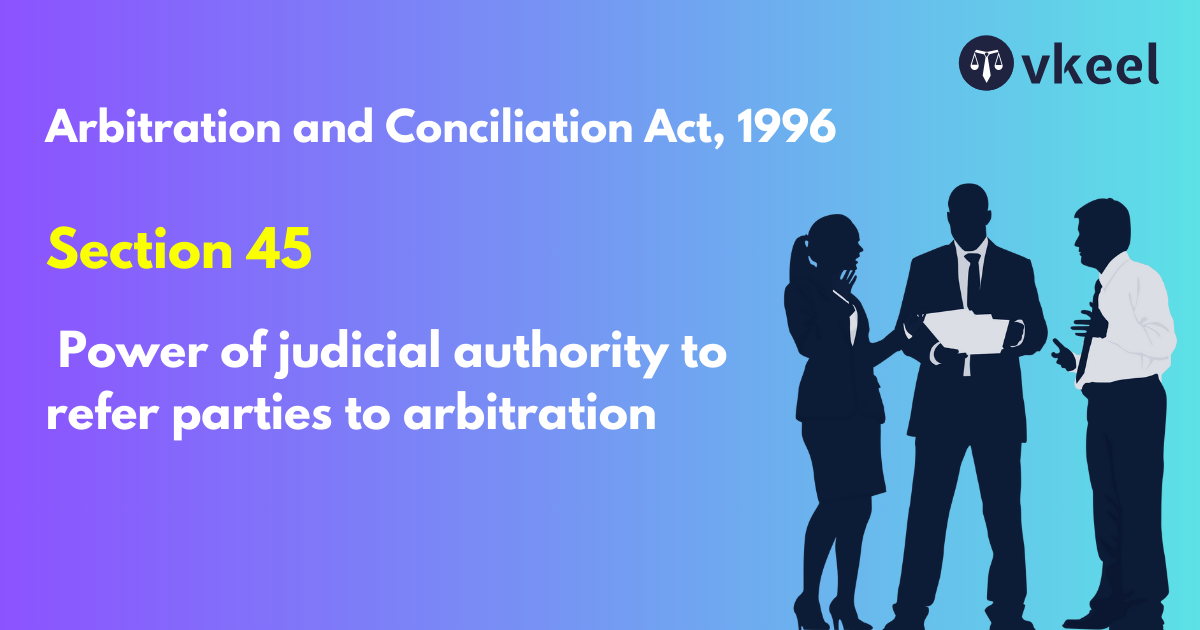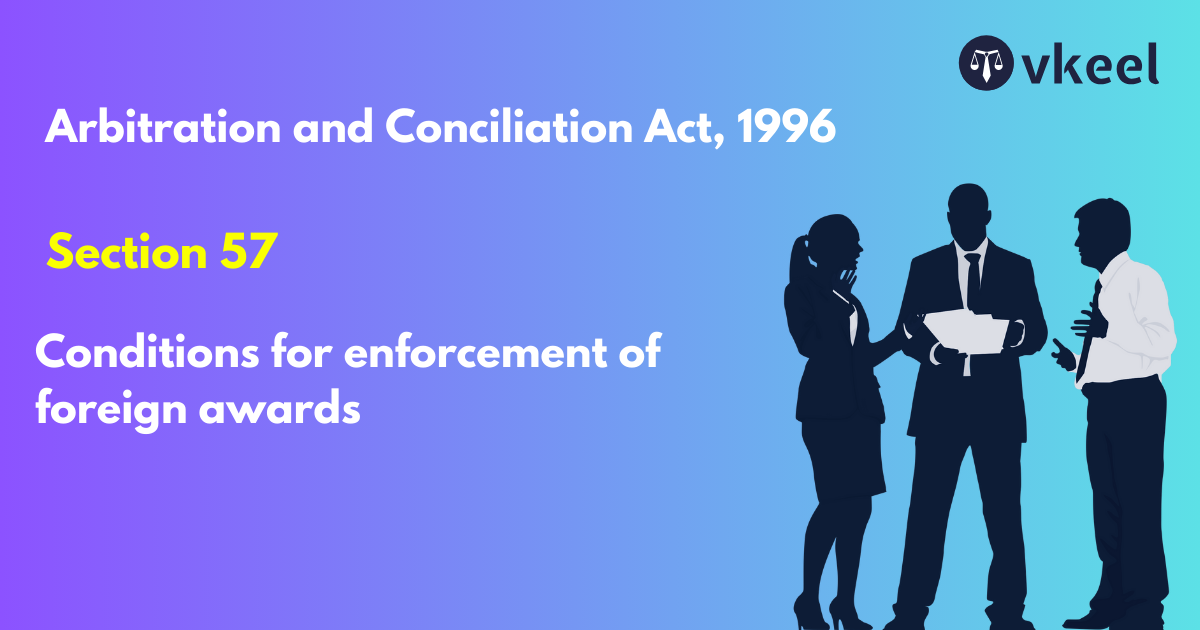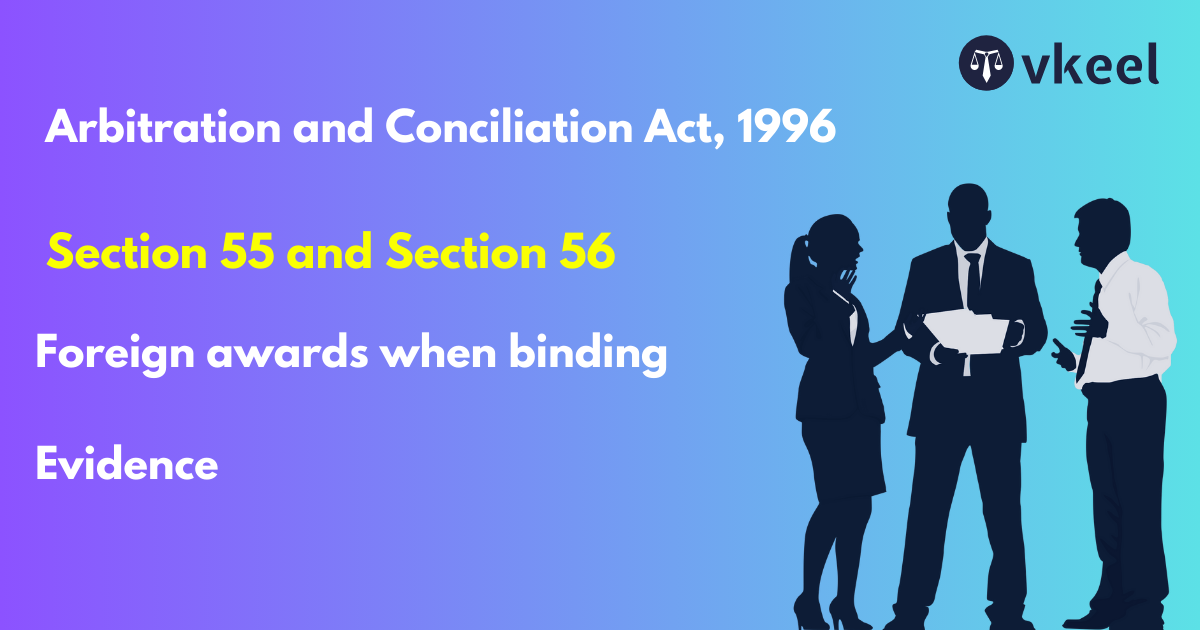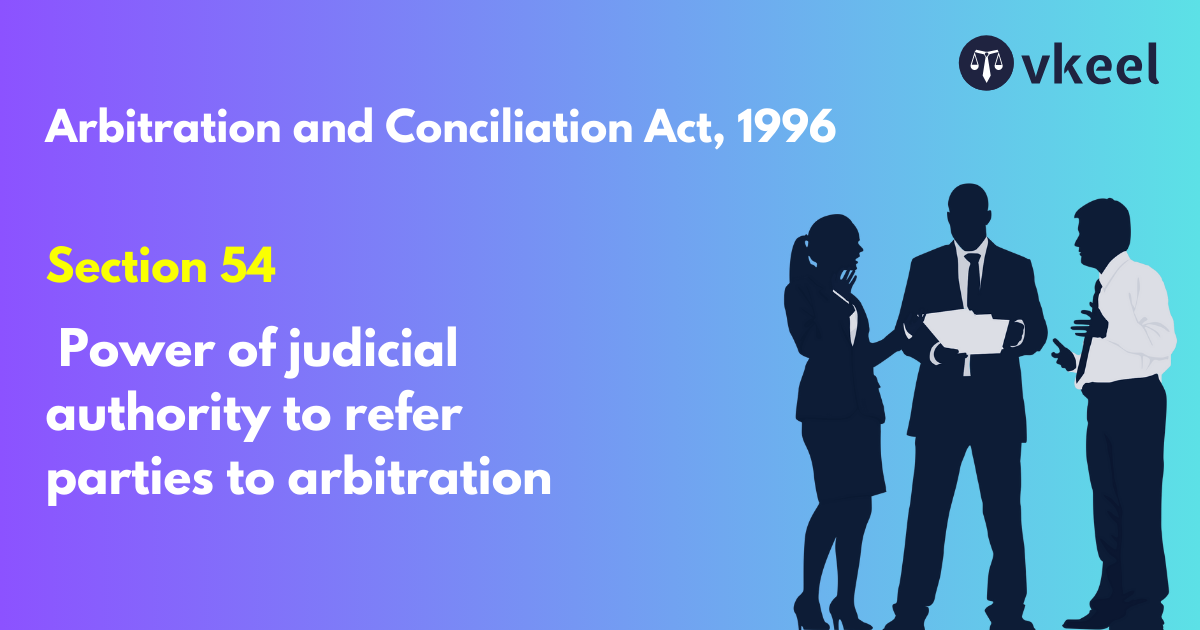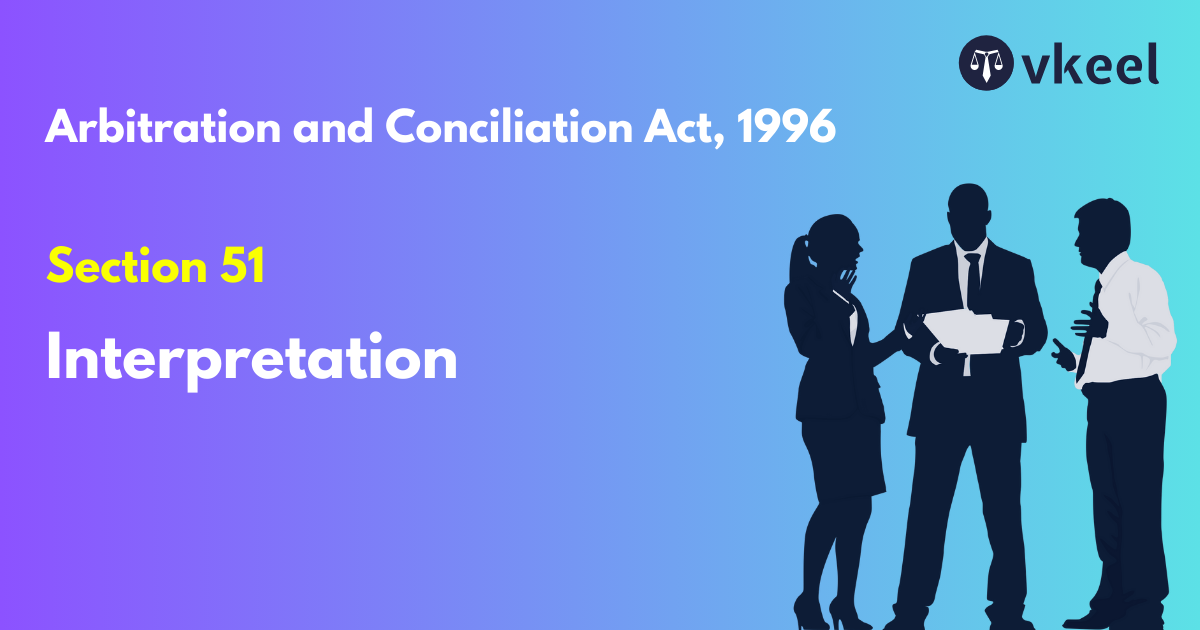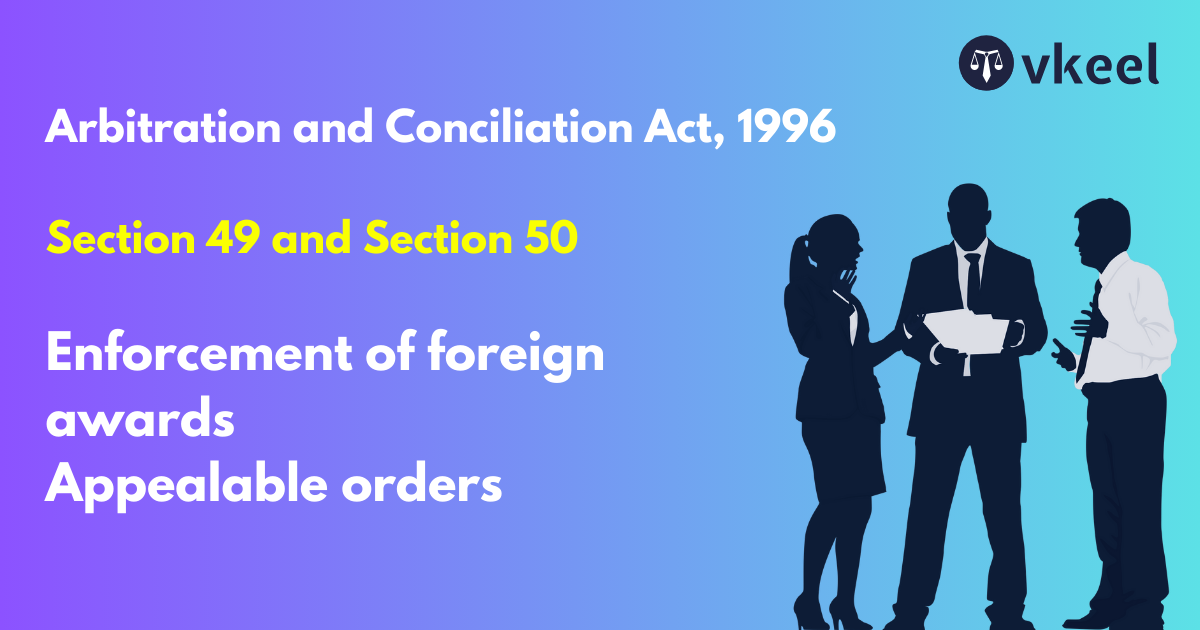Section 45: Arbitration and Conciliation Act, 1996
By Nivedita Dhiman
Table of Contents
Introduction of section 45
Section 45 of the arbitration and conciliation act states that the court should not refer the parties to arbitration, when it finds that the agreement is null and empty and incapable of being performed. This section has no application to a situation where the plurality of agreements converge on disputes and differences which arise out of a single transaction or a series of transactions which are inextricably linked wit each other. An arbitration relating to disputes arising out of legal relationship between the parties resolved would fall within the definition of international commercial arbitration.
Section 45 of arbitration and conciliation act
Power of judicial authority to refer parties to arbitration
Notwithstanding anything contained in Part I or in the Code of Civil Procedure, 1908 (5 of 1908), a judicial authority, when seized of an action in a matter in respect of which the parties have made an agreement referred to in section 44, shall, at the request of one of the parties or any person claiming through or under him, refer the parties to arbitration, 1[unless it prima facie finds] that the said agreement is null and void, inoperative or incapable of being performed.
Landmark Judgements of section 45
Pari Agro Exports vs Soufflet Alimantaire, 2019
A draft copy of the agreement was sent by one party to the other. The copy of the draft was required to be signed and stamped by the petitioner and then, the same was to be faxed back. However, the agreement was neither signed, nor stamped by the petitioner. In such circumstances, it could not be said that an agreement was entered into between the parties and hence, the award could not be enforced.
Tractroexport vs Tarapore & Co, 1971
The person who brings the derivative action involves the arbitration clause not for himself but for and on behalf of the company. The person bringing the deviate action is therefore not equally entitled to invoke but bound by the arbitration clause qua the action. Thus seen there is no reason why a derivative action cannot be brought in arbitration proceedings. Further, on the question of arbitrability a derivative action stands on the same footing as the claim before court/ tribunal or other judicial authority.
G Jawahar Enterprises vs Glencore Grain BV, 2016
Where admittedly Netherland and England provide for the same being the venue and India is a signatory to the convention, it was held that there would not be any impediment to apply the provisions of this section to the arbitration agreement incorporated in the suit contracts provided the phrasal clause of this section providing the rider is not attracted. The last part of this section is to effect that the reference to arbitration can be made, unless the courts find that the agreement is null and void, inoperative or incapable of being performed.
Caribjet Inc. vs Air India Ltd, 2007
A court has to afford full opportunity to the parties to lead documentary as well as oral evidence which they want to lead in relation to the validity or inoperativeness or incapability of performance of the agreement and then decide the question like a trial of a preliminary issue o jurisdiction or limitation in a regular suit. Where the application for reference to arbitration is passed with without affording any opportunity to the parties to lead any evidence in support of their respective contentions, impugned order was liable to be set aside.
Shakti Bhog Foods Ltd vs Kola Shipping Ltd, 2009
An order rejecting the contention as to the non-existence of the arbitration agreement was passed and it was held that such a point can be raised before the arbitral tribunal at London since the reference to arbitration was to be governed by the English Arbitration Act, 1996. The arbitral tribunal in London can decide on its own jurisdiction and can also decide on the existence of a valid arbitration agreement.
Conclusion of Section 45
The above-mentioned section of the arbitration and conciliation act ensures that at some stage, whether pre-award, post award or both, a judicial authority must decide the validity, operation, capability of the performance of the arbitration agreement. The provisions of this section are to prevail over the provisions of CPC and when the court is satisfied that an agreement is enforceable, it is obligatory upon the court to make a reference to arbitration and pass appropriate orders in relation to the legal proceedings before the court.
Disclaimer:
The information provided in the article is for general informational purposes only, and is not intended to constitute legal advice or to be relied upon as a substitute for legal advice. Furthermore, any information contained in the article is not guaranteed to be current, complete or accurate. If you require legal advice or representation, you should contact an attorney or law firm directly. We are not responsible for any damages resulting from any reliance on the content of this website.

